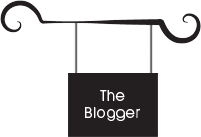Pregnancy begins when an egg (ovum)
is released from ovary about midway
between menstrual periods, and is fertilized by a sperm. Fertilization usually
takes place in the outer end of the Fallopian tube. Millions of sperm surround
the ovum, but only one can enter it. As the head of the sperm enters the ovum
its tail falls off.
As the fertilized egg moves down the
Fallopian tube, it divides into two cells. The cells keep dividing until a
solid ball of cells has been formed. When it reaches the womb, this ball of
cells becomes attached to the wall of the womb. Once the ball of cells is
attached, the tissue surrounding it produces hormones which help the pregnancy
to continue.
The ball of cells, which develops
into the baby, is referred to as the embryo at this stage. The part of the ball
of cells which attaches to the wall of the womb becomes three things – the
umbilical cord, the placenta, and the amniotic sac. These are all very
important for the growth and protection of the baby.
Source: http://www.cyh.com/HealthTopics/HealthTopicDetails.aspx?p=438&np=457&id=2754







No comments:
Post a Comment